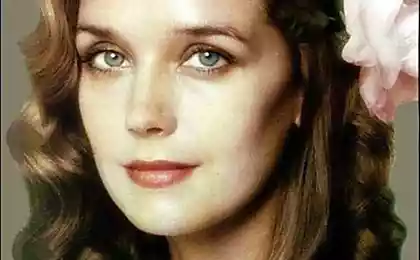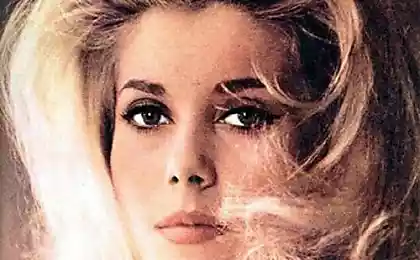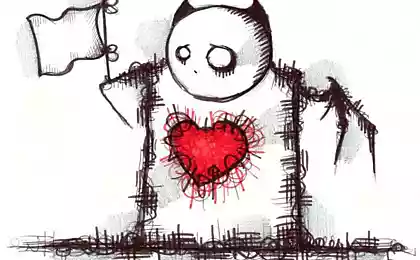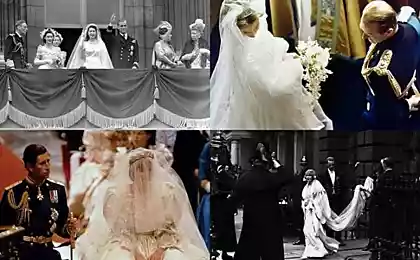601
What's Wrong with Mary Poppins and Why She's Not Lady Perfect
I have heard many times that you should not re-read your favorite children’s books in adulthood. The same goes for movies or any other work of art that once left a pleasant impression. They do not change, but we and the world around us change, which means that perception can change dramatically. It is in this light that we will look at the film Mary Poppins, Goodbye! and the work of Pamela Travers, in which it was shot.

“Mary Poppins, Goodbye!” It doesn’t really matter what movie you’ve seen. Of course, people born in the USSR, first of all, the picture with Natalia Andreychenko in the title role comes to mind. But we will not discuss the plot or the changes that the directors have made. We are interested in the image of the sorceress.

So, since childhood, we probably remember that Mary Poppins is the best nanny in the world. Of course, we were genuinely envious, because next to Jane and Michael, as well as the twin Banks (and another daughter who appeared in later books) was a real wizard. That is only by modern standards, and in general by universal human, the behavior of Lady Perfection was, to put it mildly, controversial.
Mary's drugs and alcohol are extremely arrogant, both with her children and their parents. But it does things that are difficult to understand, given the peculiarities of its work. At the very beginning of the book, the nanny distributes magical sleeping pills to children, including young twins.

They have different tastes, according to their preferences. At the same time, Poppins herself admits that she has a sleeping pill with a taste of punch with rum. Does the nanny have a problem with alcohol, if she prefers this one of all possible tastes? And the more important question is: what right does a nanny have to use some medical treatment for children without consulting their parents?
Threats, passive aggression, mood swings The wizard regularly threatens children in response to their questions. For example, he says he will call a policeman. Sometimes they just ignore the kids. She can say to be left alone because she's not an encyclopedia to know everything. Or threaten to go home if they ask at least one more question.

What can we say about the fact that children are sometimes frankly afraid of their nanny, who regularly changes her mood. This is especially true when Mary is in a hurry. In such cases, Poppins is sure that Jane is doing things badly, Michael is even worse, even the twins get hurt.

The book describes that at such moments, the guys wanted to hide behind the couch to wait for their nanny to pick up again. It is unlikely that when parents choose a nanny, they want their children to be afraid of her and worry about the moment when a woman is near.
Manipulation, gaslighting and sarcasm In our understanding, the task of the nanny is to help parents raise children, and therefore, including working on their self-esteem. Poppins laughs at the guys, even if they know something better. For example, in one section, Jane tried to explain to the nanny where in their city to look for a pastry store. In response, instead of thanking her, she only heard that she was not instructed to do the shopping.
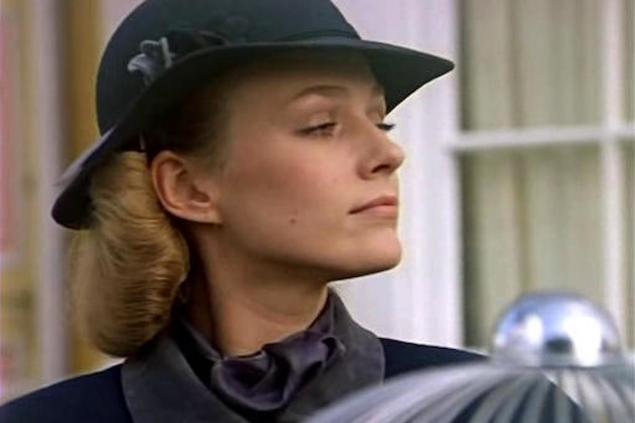
By the way, it is possible that such a character of Mary appeared for a reason. Pamela Travers’ book saw the world after she visited the Soviet Union. She also saw local teachers there. All those "Lady Perfections" who always know everything better than you do.
Gaslighting occurs when one person tries to make another question their own experience. As a result, such behavior can bring to paranoia. That's what Mary does with children. They all go to the zoo at night. And then in the morning, it's like it was a dream.

When asked by Michael and Jane, Mary only says that she is well-bred and knows the rules. There was nothing like that, because Mary Poppins couldn't have done it. You can really go crazy.
The film "Mary Poppins, Goodbye!" about another time The book, which shot the above picture, saw the world in 1934. There were completely different approaches to raising children. So it's not strange that Mary's methods now seem a little odd to many at best.
On the other hand, it is also worth noting that children love their nanny. Perhaps it’s because she’s the only character who doesn’t care about them. The father is constantly trying to earn as much as possible, the mother thinks only about the affairs of the women's club (in the American film adaptation and did her suffragette).

In general, we’re not asking you to burn Pamela Tavers’ book or not watch any of the film adaptations. Just keep in mind that in the modern world, before you let children read this work, you need to talk to them and explain all the circumstances. After all, very often the characters behave in a way that in any case should not behave with children.

“Mary Poppins, Goodbye!” It doesn’t really matter what movie you’ve seen. Of course, people born in the USSR, first of all, the picture with Natalia Andreychenko in the title role comes to mind. But we will not discuss the plot or the changes that the directors have made. We are interested in the image of the sorceress.

So, since childhood, we probably remember that Mary Poppins is the best nanny in the world. Of course, we were genuinely envious, because next to Jane and Michael, as well as the twin Banks (and another daughter who appeared in later books) was a real wizard. That is only by modern standards, and in general by universal human, the behavior of Lady Perfection was, to put it mildly, controversial.
Mary's drugs and alcohol are extremely arrogant, both with her children and their parents. But it does things that are difficult to understand, given the peculiarities of its work. At the very beginning of the book, the nanny distributes magical sleeping pills to children, including young twins.

They have different tastes, according to their preferences. At the same time, Poppins herself admits that she has a sleeping pill with a taste of punch with rum. Does the nanny have a problem with alcohol, if she prefers this one of all possible tastes? And the more important question is: what right does a nanny have to use some medical treatment for children without consulting their parents?
Threats, passive aggression, mood swings The wizard regularly threatens children in response to their questions. For example, he says he will call a policeman. Sometimes they just ignore the kids. She can say to be left alone because she's not an encyclopedia to know everything. Or threaten to go home if they ask at least one more question.

What can we say about the fact that children are sometimes frankly afraid of their nanny, who regularly changes her mood. This is especially true when Mary is in a hurry. In such cases, Poppins is sure that Jane is doing things badly, Michael is even worse, even the twins get hurt.

The book describes that at such moments, the guys wanted to hide behind the couch to wait for their nanny to pick up again. It is unlikely that when parents choose a nanny, they want their children to be afraid of her and worry about the moment when a woman is near.
Manipulation, gaslighting and sarcasm In our understanding, the task of the nanny is to help parents raise children, and therefore, including working on their self-esteem. Poppins laughs at the guys, even if they know something better. For example, in one section, Jane tried to explain to the nanny where in their city to look for a pastry store. In response, instead of thanking her, she only heard that she was not instructed to do the shopping.

By the way, it is possible that such a character of Mary appeared for a reason. Pamela Travers’ book saw the world after she visited the Soviet Union. She also saw local teachers there. All those "Lady Perfections" who always know everything better than you do.
Gaslighting occurs when one person tries to make another question their own experience. As a result, such behavior can bring to paranoia. That's what Mary does with children. They all go to the zoo at night. And then in the morning, it's like it was a dream.

When asked by Michael and Jane, Mary only says that she is well-bred and knows the rules. There was nothing like that, because Mary Poppins couldn't have done it. You can really go crazy.
The film "Mary Poppins, Goodbye!" about another time The book, which shot the above picture, saw the world in 1934. There were completely different approaches to raising children. So it's not strange that Mary's methods now seem a little odd to many at best.
On the other hand, it is also worth noting that children love their nanny. Perhaps it’s because she’s the only character who doesn’t care about them. The father is constantly trying to earn as much as possible, the mother thinks only about the affairs of the women's club (in the American film adaptation and did her suffragette).

In general, we’re not asking you to burn Pamela Tavers’ book or not watch any of the film adaptations. Just keep in mind that in the modern world, before you let children read this work, you need to talk to them and explain all the circumstances. After all, very often the characters behave in a way that in any case should not behave with children.
I asked my husband to take me to the city market, but he refused, I understood the reason when I decided to go there myself.
After the divorce with his wife Anna Shaplykova, Grigory Leps is again preparing for the wedding, his chosen one is 18 years old.







